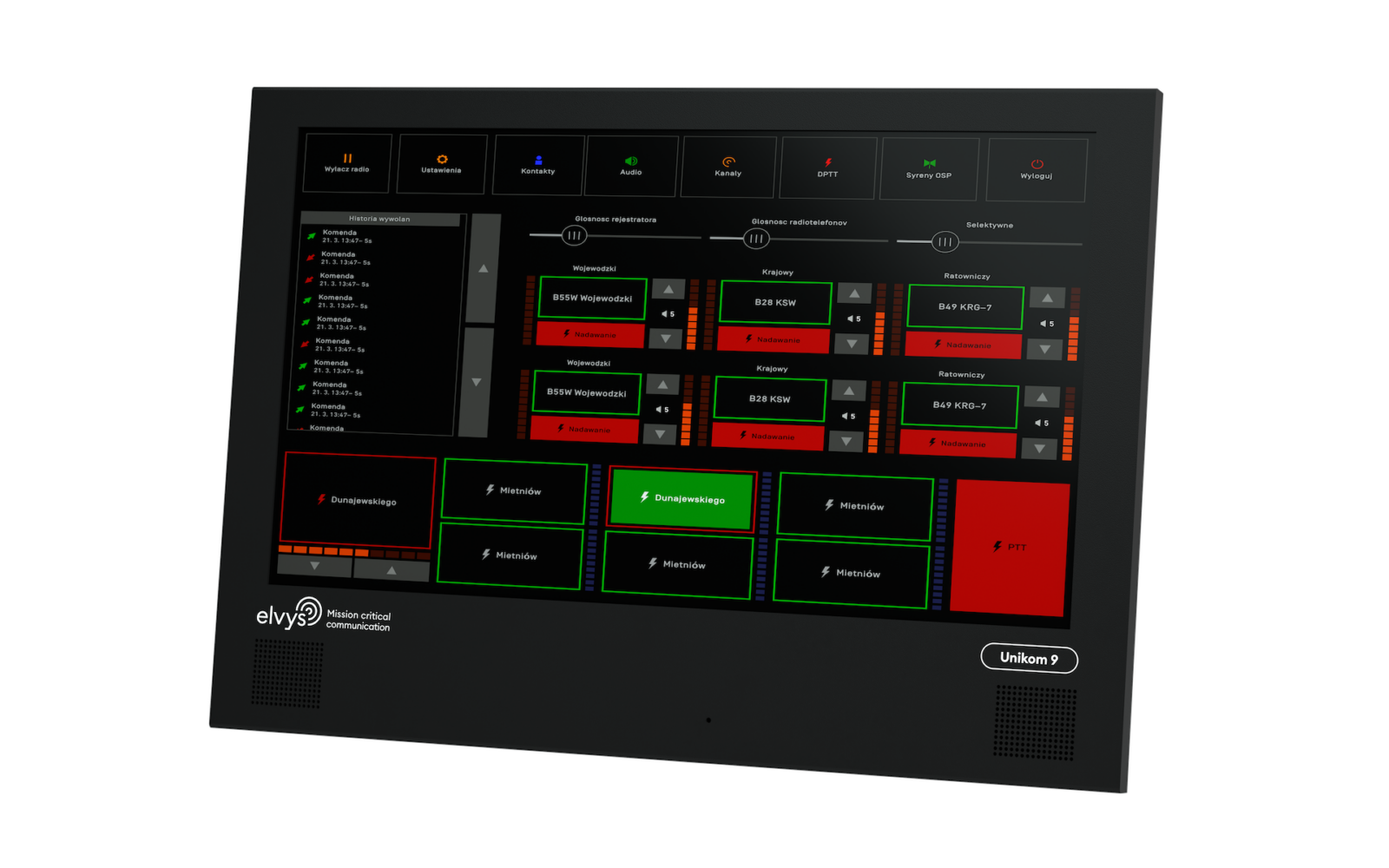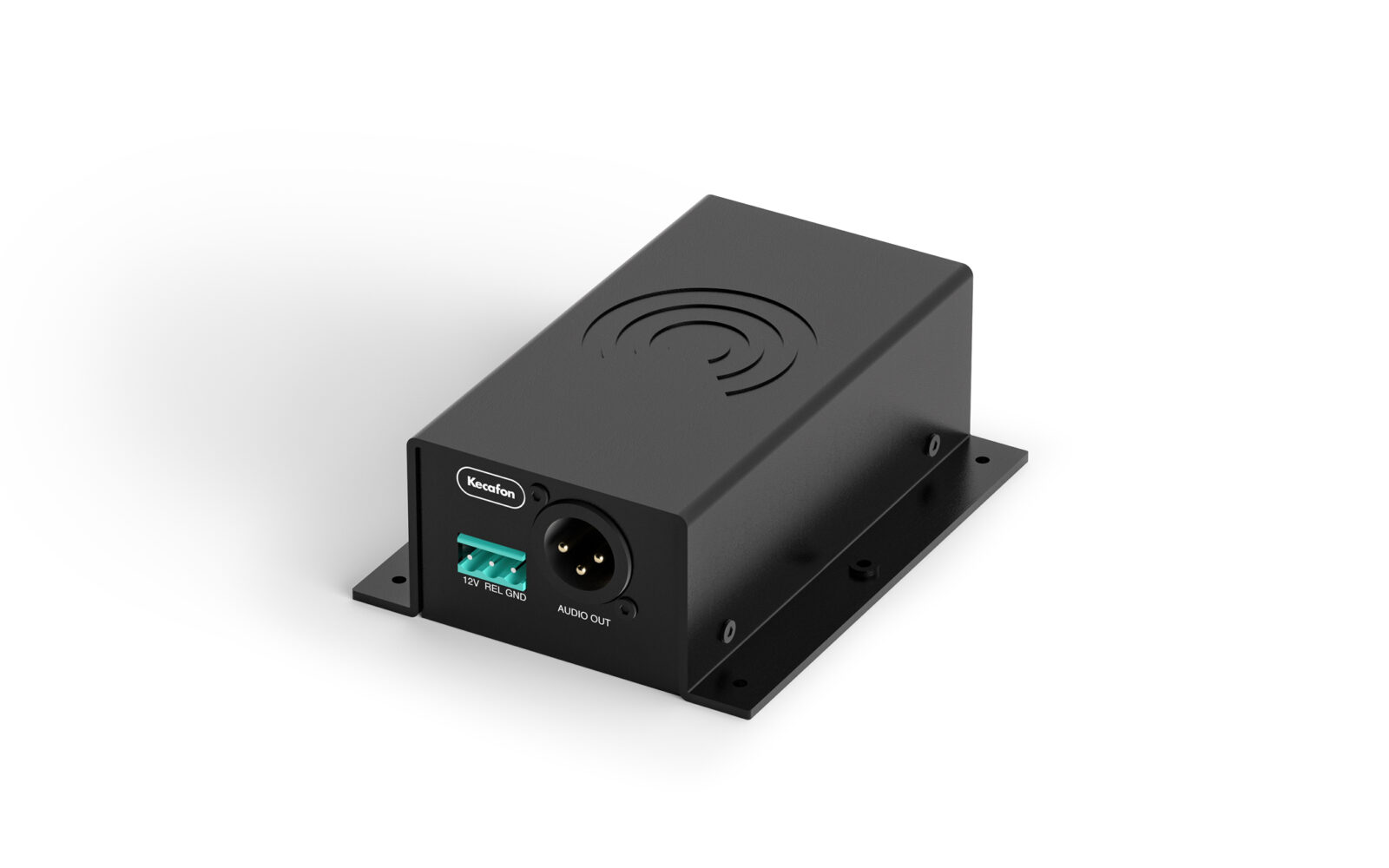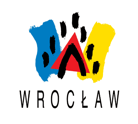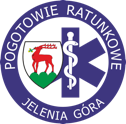Emergency Medical Services in Jelenia Góra, Poland
In 2014, the Central Dispatch Room of the Jelenia Góra Emergency Me- dical Services took over the control and deployment management of ambulance teams from several dis- tricts: Jelenia Góra, Kamienna Góra, Lwówek and Lubańskie.
The previous radio communication sys- tem was not able to ensure effective communication with ambulances in the moun- tainous landscape of the given region.
The best way to accomplish the task of increasing the radio network range in order for it to cover a larger area managed by a new central dispatch room was to install a new network of digital radio repeaters. However, there were limitations and challenges with regards to the equipment / hardware costs, the maintenance of the digital data transmission network of appropriate parameters, and the need to use an expanded pool of radio channels. For an organization whose job is to manage up to several tens of ambulance teams, only several of which are active at the same time, throughout a large terri- tory, the ideal solution turned out to be the use of several remotely controlled base stations operating on the same radio channels that had hitherto been used.
In the case of the Jelenia Góra Emergency Medical Services, the Multikom system is operated in Voting mode. The remotely controlled base stations have been located in such a way as to ensure, in aggregate, complete radio signal coverage of the concerned area. The system auto- matically recognizes and evaluates the intensity of the signal received over a radio channel and then selects the base station which is receiving the most powerful signal at the given moment in order to forward the communication to a dispatcher. As an additional advantage, it was possi- ble to integrate the Multikom system with the local EDACS trunked system which was already used for mutual
communication between various public safety services in Jelenia Góra and the surrounding area. The system is ready to be expanded so that it covers the surrounding regions as well, should such a need arise.
Railways of the Slovak Republic
We are proud to say that we were able to successfully complete a very challenging project for the Railways of the Slovak Republic. The tricky part rested in the customer’s require- ment for a Voting function which would make it possible to track and monitor a moving train on the basis of its identi er and the intensity of the radio signal.
We designed an array of directional an- tennas to be installed along the railway in more than 15 base station units. Any of these units may be used in automatic Voting mode or in open mode on another channel. Voting mode is initiated with a selective call to a particular train. Next, the system automatically selects the place with the strongest signal and then follows the train, switching from one base station to another according to the signal strength and the received identi er.
City of Wrocław
To date, this is our largest single installation. The system comprises about 70 dispatch consoles and do- zens of local base radiotelephones of various types; Tetra, EDACS, conven- tional, and DMR. 15 remote radio lo- cations using the E1 technology and one location using the IP network technology are included the system. Moreover, a 90-meter antenna tower was also built as part of the project.
The system enables radio communica- tion from a dispatch room common for all major organizations responsible for the city security and safety; Police, Municipal Police, Fire Brigade, Emergency Medical Services, etc. In 2013, the system was expanded with additional radiotele- phones and dispatch centres used by MZK Wrocław. Furthermore, DMR Mototrbo re- peaters produced by Motorola Solutions were also connected to the system via an IP network for the needs of the Wrocław Emergency Medical Services.
At the beginning of 2015, the infrastruc- ture of the Tetra system used by MZK Wrocław was further modi ed and expanded. Rohill’s TetraNode solution was used for this purpose. The Multikom system was linked up with the TetraNode infrastructure using a network protocol of the Tetra infrastructure manufacturer, the Rohill company.
Thanks to this integrative upgrade, Multikom consoles now have access to a number of advanced features of Wroclaw’s Tetra system.









